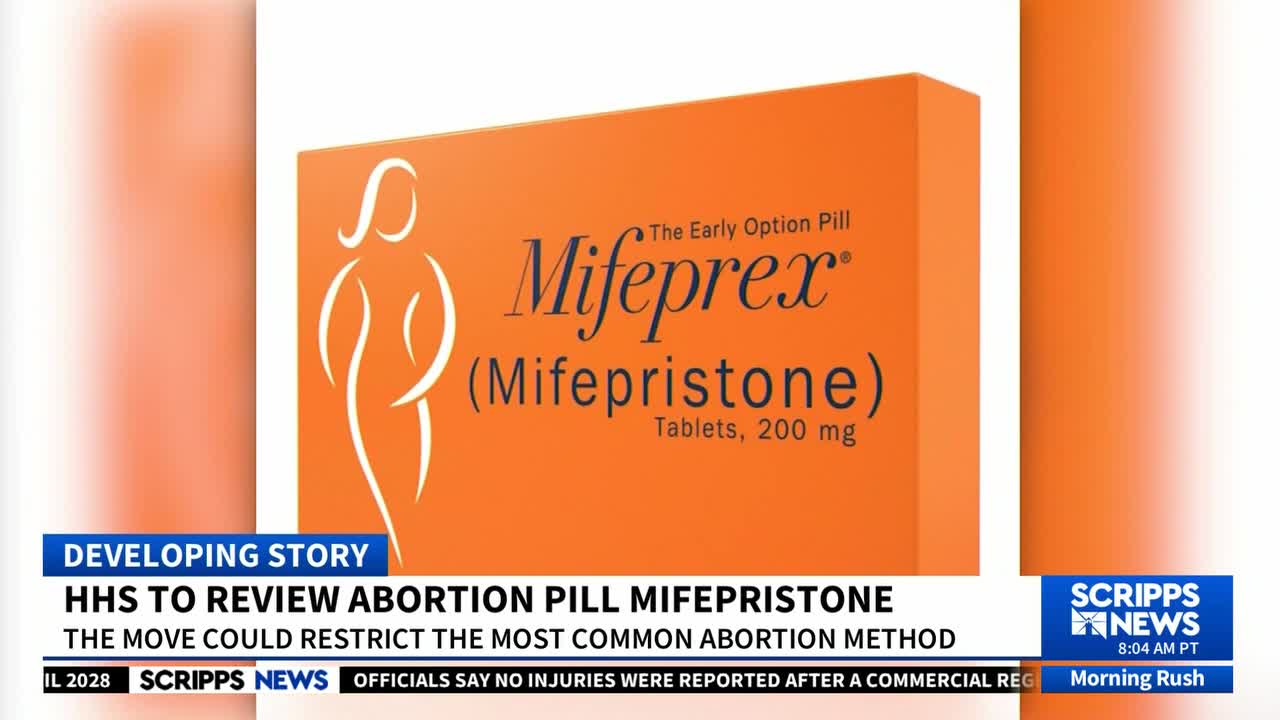Health and Human Services Secretary Robert F. Kennedy Jr. and Food and Drug Administration Commissioner Dr. Marty Makary sent a letter to 22 Republican state attorneys general who'd previously requested an FDA review of the safety of mifepristone, a drug used to terminate pregnancy, Scripps News has learned.
The letter points to a study from the Ethics and Public Policy Center, a conservative think tank with ties to the Heritage Foundation and Project2025, that claimed to show that 11% of women taking the drug experienced "serious adverse events." The study was not peer reviewed; previous research cited by the FDA when approving the drug showed an adverse event incidence rate of just 0.5%.
“There’s a lack of transparency in the report about the methodology, about what they did, and there are many flaws in the analysis and how they classified what they considered ‘serious adverse events,’” said Ushma Upadyay, a professor and public health scientist at the University of California, San Francisco who reviewed the Ethics and Public Policy Center study.
Upadyay has researched mifipristone and other forms of abortion and said the pill is "one of the most studied medications in the world" and is "extremely safe."
Mifepristone is typically prescribed with another medicine called misoprostol. The drugs were approved to end a pregnancy through 10 weeks of gestation.
"Since its original approval, the FDA has received reports of serious adverse events in patients who took mifepristone. As with all approved drugs, when the FDA receives new information regarding adverse events, the agency reviews the new information and, as appropriate, takes necessary action," the letter states. "HHS—through the FDA—is conducting its own review of the evidence, including real-world outcomes and evidence, relating to the safety and efficacy of the drug."
Medication abortions account for about two-thirds of all pregnancy terminations in the U.S., according to the Guttmacher Institute, a sexual and reproductive health research group. In states where abortion is banned, it's often the only way for women to safely terminate pregnancies due to its availability on online and mail-order pharmacies and telehealth appointments.
A 2022 Scripps News investigation found that for every 1 million patients who used mifepristone, 6 and a half patients died, and that the death rate for penicillin is 4 times higher.
Abortion rights groups condemned the review.
“Let’s be clear: this is not about safety—this is the first step in banning abortion nationwide, even in states where it is currently protected. Donald Trump, Robert F. Kennedy Jr., and Martin Makary are hijacking our government agencies to push a backdoor abortion ban," said Mini Timmaraju, president and CEO of Reproductive Freedom for All. "They are lying about their agenda, and this is proof. Mifepristone is safe, effective, and essential. This is political interference designed to rip away our freedoms.”
Carrie N. Baker, a professor of the study of women and gender at Smith College and the author of a book on the politics of abortion pills says restrictions on access to mifepristone would make getting an abortion more challenging, but not impossible.
"I think that it would be a real disaster for science, medicine, and reproductive health in this country," Baker said. "But it would not stop abortion. It would not stop the flow of abortion pills to people on the ground."





